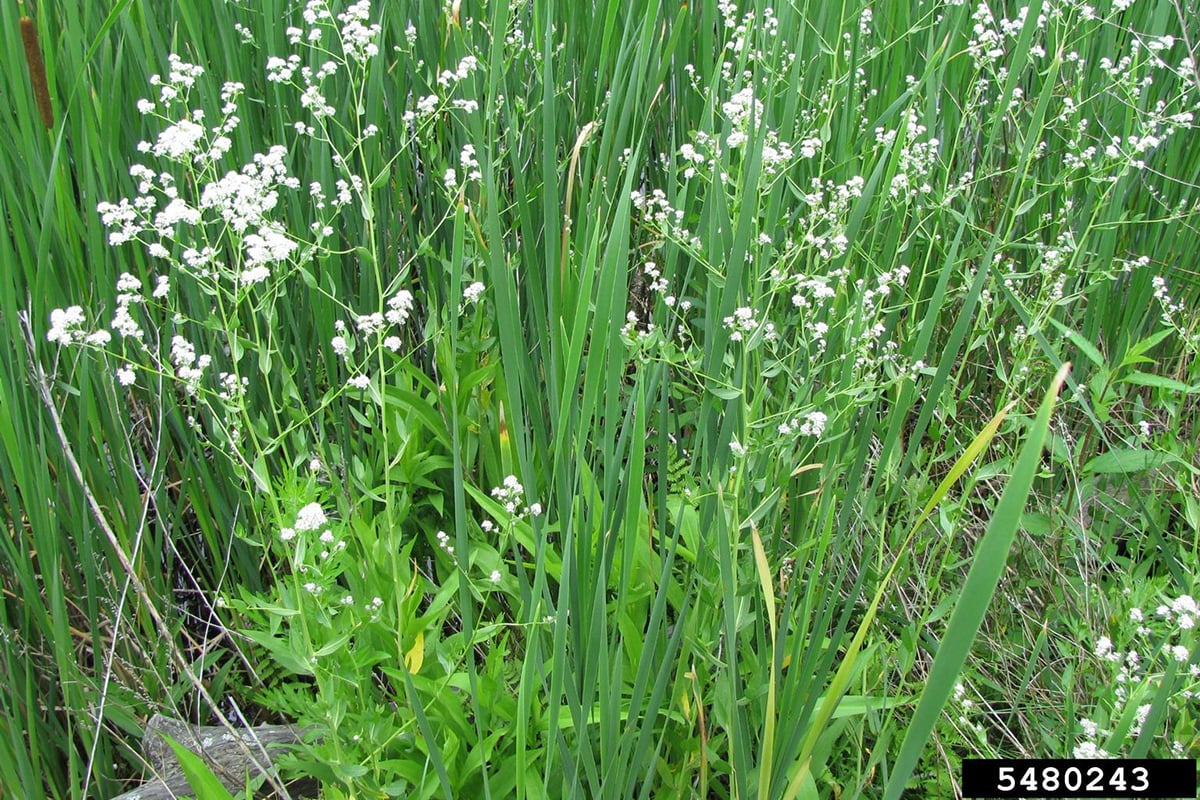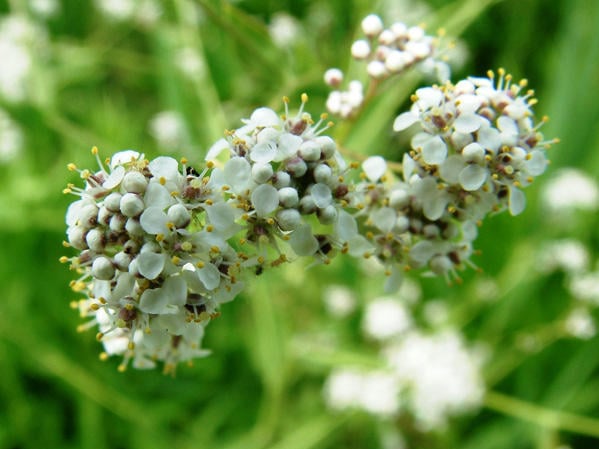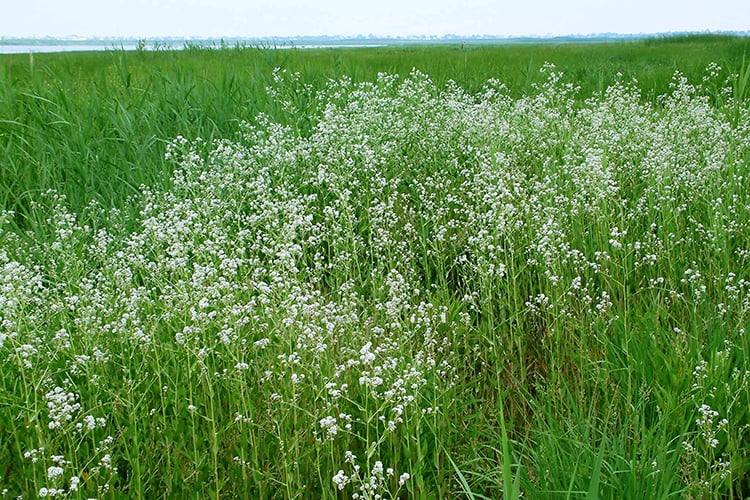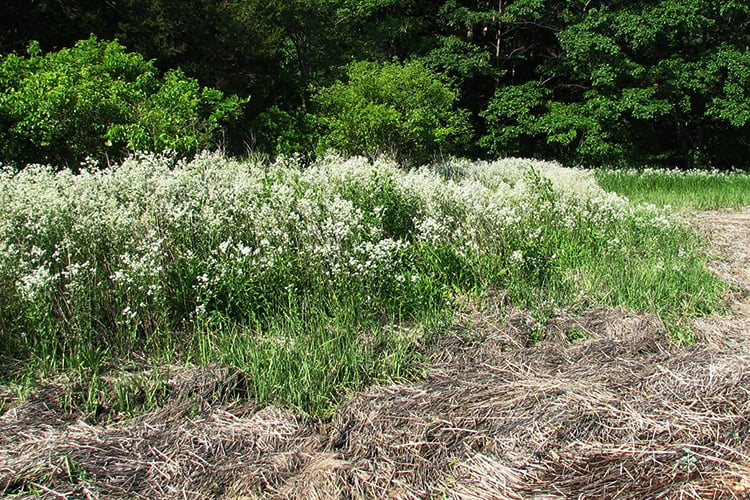Perennial Pepperweed
About Perennial Pepperweed
Perennial Pepperweed (Lepidium latifolium)—also known as Broad-leaved Pepperweed—is a perennial herb native to Europe and western Asia that was introduced, perhaps accidentally, into North America. Usually found in dense patches, it grows 2–5 feet tall and has clusters of four-petaled white flowers.
The Problem
It typically invades higher-elevation parts of coastal wetlands, though in recent years it’s been found inland along highways. It can change soil conditions in a way that enhances its ability to displace native plants.
The Solution
For seedlings and small colonies of established plants, hand pulling can be effective, but you may need to pull for several years. When pulling plants, grab them by the roots, wiggle them, and try your best to get all the roots you can. You can get training at a Mass Audubon volunteer pepperweed pulling session. Bag and compost pulled plants to avoid spreading stems, roots, or seeds.
Glyphosate-based herbicides are effective when applied as a foliar spray around the time of flowering (June and early July). Because it almost always grows in areas subject to the jurisdiction of the Massachusetts Wetlands Protection Act, anyone planning control measures should first check with the conservation commission of the town where the work will occur. Only apply herbicides registered for use in these areas.
Always read and follow the directions on the label when using an herbicide.
Perennial Pepperweed Control Project
Since 2006, Mass Audubon has been working with the U.S Fish and Wildlife Service, the Massachusetts Bays Estuary Program, and the Newburyport Gulf of Maine Institute to battle invasive Perennial Pepperweed on in the Great Marsh, one of the most important coastal ecosystems in the Northeast. And you can help! Learn more & get involved
Pictures of Perennial Pepperweed




Stay Connected
Don't miss a beat on all the ways you can get outdoors, celebrate nature, and get involved.


